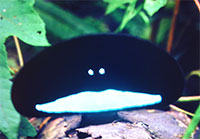 Here in jolly England we’ve had 6 months of HD television, and the selection so far has been adequate, but still fairly limited.
Here in jolly England we’ve had 6 months of HD television, and the selection so far has been adequate, but still fairly limited.
At the time of writing there are exactly 13 HD channels, which include 4 movie channels, 4 lifestyle channels, 3 sports channels, 1 general interest channel and BBC HD. The latter is basically just a preview channel at the moment with various 3-5 minute selections of footage from BBC Dramas, entertainment shows and natural history programming, which are all universally being shot now by the BBC in high definition.
The promise of all this is breathtaking and the channel makes a very nice showcase to have on if you have friends round or whatever. But it is just that… a promise, a tease.
The BBC certainly has enough HD material to fill a round the clock channel, but for whatever reason they are not doing so. It’s probably arguments over funding, scheduling or some other typical BBC politics.
For a couple of hours per day however we are treated to some full length HD programming, and no better example is the absolutely stunning, gasp out loud amazing natural history series ‘Planet Earth’.
For many years the BBC has had its specialist natural history unit spirited away in a regional town called Bristol, about two-and-a-half hours outside of London. These guys (and girls) are literally the very best in the world at what they do, and in my personal opinion more talented and dedicated than the very best feature film directors or cinematographers. I used to work as a cameraman, and what these people do leaves me speechless.
No better example of their sheer talent and determination is apparant than in this new series Planet Earth. With the venerable David Attenborough as narrator, and with HD at their disposal, the natural history unit in Bristol has come up with the most amazing natural history series you have ever seen in your life.
Currently airing in Britain on Sunday nights for a second run, and in HD, it is appointment to view television like nothing I’ve experienced. The wife and I literally look forward to Sundays at 9pm so we can sit down, with lights turned off, and travel to a world we’re unlikely to ever see in person. I can’t remember the last time I felt like that about television.
Last night was a show about the jungles of the world. Stretching from the rainforests of South America, to New Guinea and back to Africa, you get to see creatures and plants that you simply had no idea even existed. There are the fungal spores that absorb themselves into insects such as ants, move through their bodies into their brains, send them mad, kill them, then grow out ‘Alien style’ from their heads. I’m not joking. There is the spider who lives on the outside of an insect trapping plant, who rappels down into the plant to steal the insects trapped within, narrowly avoiding death itself. There are the male birds of paradise in New Guinea (see pic), who in a role reversal of humans, put on incredibly bizzare, costume-like displays, to attract the rather boring and dull looking females.
If you get the chance to see this series, do not hesitate, do not pass go, buy an HD television just to watch it. You will never in your life be so taken back and surprised by the world that exists around us.
I particularly like how at the end of each show you get to see how the filmmakers achieved some of the ‘how-did-they-do-that shots’. For the birds of paradise segment, one cameraman spent 5 weeks, for up to 15 hours in a day, waiting inside a hideaway, for just three shots. The result is something that has never before been captured on camera.
Bravo and kudos.
Planet Earth is a mind-boggling show, really, sometimes I think it’s just a computer manipulated/animated spectacle. Yes, conspiracy theories and skepticism run deep in me, nothing is left unturned. Nevertheless my wife and I also await Sundays’ best TV program with much anticipation.
Of course the music and the oration add so much thrill to it; the omniscient, authoritative yet pleasant and familiar voice of David Attenborough tells the story in such a way that no one dares to question if it’s just a story, or a coincidence or a speculation. Regardless, I have no alternative to believe or refute with.
Watching Planet Earth, despite the beauty and sometimes eeriness and peculiarity of the
‘natural’ world and its creatures, generally leaves me a bit depressed. Yes, one reason is that it’s finished and I have to wait another week, but more importantly, it’s because it reduces the natural world to a chase for a space and a bite to eat, with an occasional, mechanical and seemingly passionless sexual act. The show somehow diminished the nobility and mystique and virtue of the various creatures, and reminds me that all of us are just part of the food chain trying so desperately to hold on to this life, for some reason- maybe it’s just an instinct, a Matrix program or God. I guess that reason or drive is the mystery, not really the life itself.
It is nice and comforting to know that you and your wife are cuddled up watching it just as myself and so many others are, feeling that connection and expressing it, I guess separates us from the ‘natural’ world.